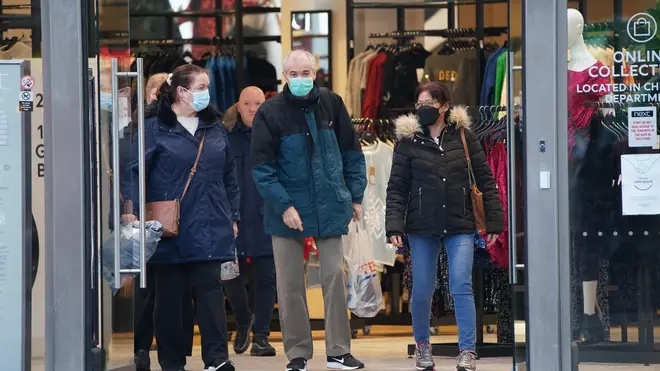
Ben Kentish 10pm - 1am
3 December 2021, 10:24

The closely-watched IHS Markit/CIPS UK Services PMI survey recorded a reading of 58.5 last month, dipping from 59.1 in October.
Growth in the UK’s services sector eased slightly in November and industry sentiment dropped to a 12-month low amid ongoing staff shortages and supply chain pressure, according to new figures.
However, the statistics also showed that the industry has continued its recovery, with firms reporting the fastest rise in new business for the past five months.
The closely-watched IHS Markit/CIPS UK Services PMI survey recorded a reading of 58.5 last month, dipping from 59.1 in October.
A score above 50 is considered to show growth.
Surveyed companies said consumer spending has not yet been affected by inflationary pressures or concerns over recent supply issues.
It added that new orders rebounded as new trade from abroad increased at its fastest pace since 2017.
🇬🇧 Growth in the UK’s service sector remained strong in November with the #PMI at 58.5 (Oct: 59.1), driven by a rise in new work. That said, sentiment dipped to a 12-month low amid ongoing staff shortages and supply chain constraints. Read more: https://t.co/Gx7xH4ZfsN pic.twitter.com/mROsqigNKS
— IHS Markit PMI™ (@IHSMarkitPMI) December 3, 2021
Tim Moore, economics director at IHS Markit, said: “Surging price pressures have done little to dent business and consumer spending across the UK economy, according to the latest PMI data.
“New order growth hit a five-month high in November, job creation remained strong, and backlogs of work built up due to supply issues.
“The overall speed of recovery looks to have accelerated in comparison to the third quarter of 2021, with output growth mostly driven by services as manufacturers struggle with severe shortages of raw materials and critical components.”
However, business expectations have been held back by supply issues in the services sector, as “the degree of optimism about business activity growth was the lowest for 12 months”.
The report also reported that the prices charged by service sector firms rose at a survey record pace in November.
Meanwhile, companies continued to indicate robust demand for staff in November, with employment numbers rising for the ninth consecutive month.
Duncan Brock, group director at the Chartered Institute of Procurement & Supply (CIPS), said: “This ongoing demand was fuelled by a slight recovery in supply chain performance in some quarters and travel opportunities opened up for more business.
“Firms were keen to improve on their capacity as hiring levels were maintained even if job-seekers kept the upper hand in terms of choice and salary uplifts.”